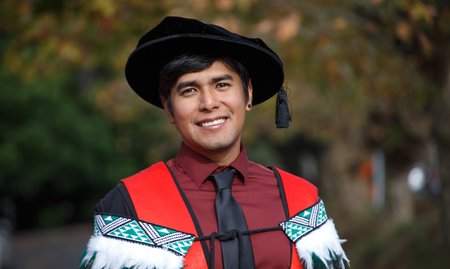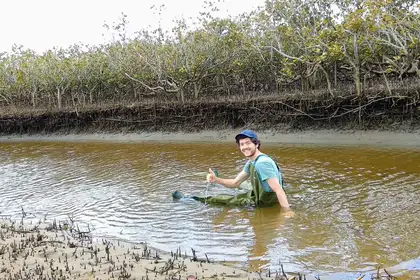
Dr de Satgé's academic path saw him complete a Master of Sciences in conservation at the University of Antwerp, Belgium and a Bachelor of Science in applied biology, ecology, and environmental science at the University of Cape Town, South Africa.
His decision to pursue a doctorate was driven by a deep respect for nature and a strong passion for its preservation and protection. Choosing Te Kunenga ki Pūrehuroa Massey University for his doctoral studies was a decision influenced by the presence of a supportive mentor.
“I found a supervisor, Associate Professor Weihong Ji, who believed in me and wanted to support me throughout a multi-year journey. A PhD at Massey also enabled access to some of the most beautiful field sites I’ve had the pleasure of working in,” he explains.
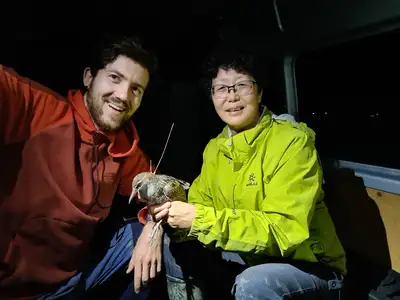
Dr Jacques de Satgé and his supervisor Associate Professor Weihong Ji.
His research explored the connection between mangroves and birds, which is often overlooked. By carefully observing and analysing data, he discovered strong evidence that mangroves are crucial for supporting native bird populations.
“One of the goals of my PhD was to better understand how banded rails – a shy and cryptic bird – used mangrove habitats in their day-to-day life. Understanding behaviours enables a wider view of the importance of different habitats, like mangroves, in supporting our coastal bird populations.”
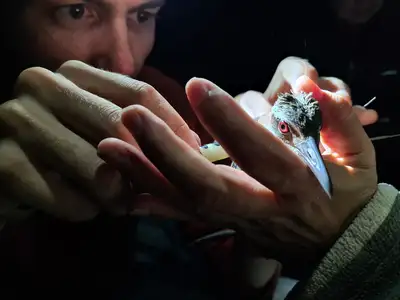
Tagging a banded rail.
His research found that banded rails forage extensively in mangrove forests and can also roost (sleep) in mangrove trees overnight.
“Having the data to back up these assumptions means we now know that mangroves are more important than previously assumed or understood in supporting the habitat requirements of birds like the banded rail.”
His choice to explore mangrove removal practices in Aotearoa New Zealand stemmed from his deep commitment to real-world conservation biology.
“Having a conservation lens means that you situate the study in the real world, seeking to understand how nature might interact with and be influenced by people and our actions. In New Zealand, mangrove removal is a contentious topic, and the debate as to its effects on nature – in particular birds - has been (historically) lacking in evidence. Being able to fill this knowledge gap was a key motivator for my research.”
His research highlighted the danger posed by mangrove loss to banded rail populations, underpinning the need for conservation efforts to carefully manage these crucial habitats.
“The loss of mangroves reduces the availability of crucial foraging and roosting habitats, leading to potential declines in local rail populations. Mangrove forests, especially old-growth mangroves, provide abundant food resources for banded rails and other mangrove-using birds. These ecosystems are undervalued for their role in maintaining Aotearoa’s bird diversity and supporting various avian life stages.”
Reflecting on his fieldwork, Dr de Satgé recalls the exhilarating moment of capturing his first banded rail.
“No one has (intentionally) tried to catch banded rails for research purposes since the early 1980s, so I had very little idea of how to do it. I developed custom-built cage traps with guide netting to live-capture banded rails. It was arduous work to build and install this trapping infrastructure in the mangroves. I’d installed special monitors on the traps to alert me, via a text, if one of the cages had been set off. The first time I got one of those texts, in the dark at around 8pm, my heart was racing as I made my way towards one of the traps. I’ll never forget seeing and then holding the bird in that cage with it representing years of work and planning. I was so grateful and proud it’d all come together, and I’d had the opportunity to be up close with these beautiful birds.”
He says finding out that banded rails roosted in mangroves was new information.
“While a few local birders had suggested it was possible, it had not been observed or recorded before. I remember opening up the GPS data file from one of the birds I’d caught and GPS tagged, plotting the points onto a satellite image, and being astounded to find that this bird had spent almost two weeks straight in the mangroves. My supervisor and I could hardly believe it!”
Amongst his many triumphs, Dr de Satgé’s research was not without its challenges.
“I take immense pride in the resilience and dedication of my peers, who have consistently produced high-quality research and fostered an exceptional learning environment. Additionally, the COVID-19 pandemic posed significant obstacles to my research, particularly by limiting access to field sites due to frequent and unpredictable regional border closures, disrupting planned fieldwork sessions that required inter-regional travel.”
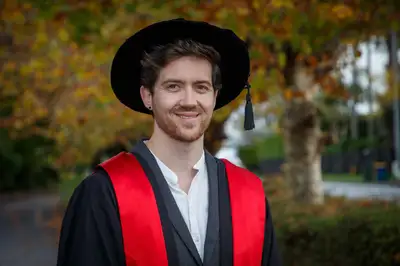
Dr Jacques de Satgé at his Auckland graduation.
While in the midst of his research, Dr de Satgé embraced another life-changing role: becoming a father to two children.
“During my PhD, my partner gave birth to my two children – Louie and Malea. While not strictly a ‘research challenge’, it did turn my world upside down! Learning to balance my life as a researcher and a father was a challenge, but I’m so grateful to my supervisors and colleagues for being supportive and to my partner who enabled my continued study.”
Dr de Satgé aims to contribute to the broader field of ecology and conservation by using his research to aid the study and conservation of other vulnerable bird species.
“During my thesis, I worked with the Office of the Prime Minister’s Chief Science Advisor to write a report aimed at policymakers about mangrove removal. My hope is this report’s recommendations can inform future work around mangrove management.”
He hopes that his work will ultimately lead to better and more targeted conservation outcomes for species at risk of extinction.
“Banded rails, and the wider rail family, are some of the most poorly studied birds in the world. We know incredibly little about their behaviour, life cycle and habitat choices. Now we’ve filled in a few of these puzzle pieces in a New Zealand context, as well as developed some novel methods to study and track banded rails. Historically, and particularly in our part of the world, rails have gone extinct at alarming rates. Hopefully, with better study, awareness and communication, we can put a halt to that trend.“
Related news
A beetroot drink a day may keep the doctor away
Dr Luke Stanaway's doctoral research shows nitrate-rich beetroot juice can help reduce blood pressure.
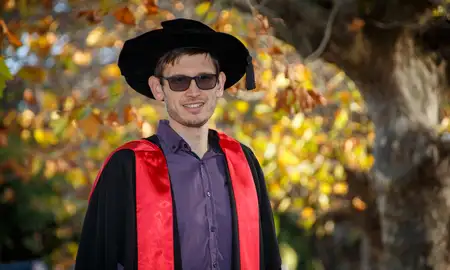
Uncovering the secret life of blackbirds
Dr Mehrnaz Tavasoli dedicated her PhD study to broadening the understanding of how individuality in behavioural traits contributes to reproductive success and survival in common blackbirds.
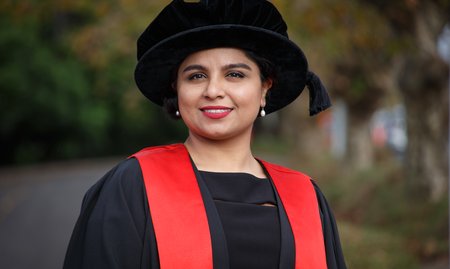
Saving endangered bird species a passion for PhD graduate
For his doctoral research, Dr Enzo Reyes investigated the factors that need to be considered to successfully translocate the endangered Floreana mockingbird to Floreana Island in the Galápagos Archipelago.
